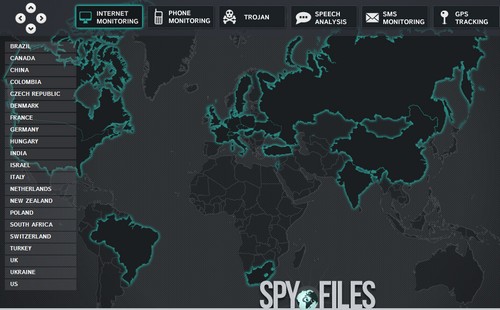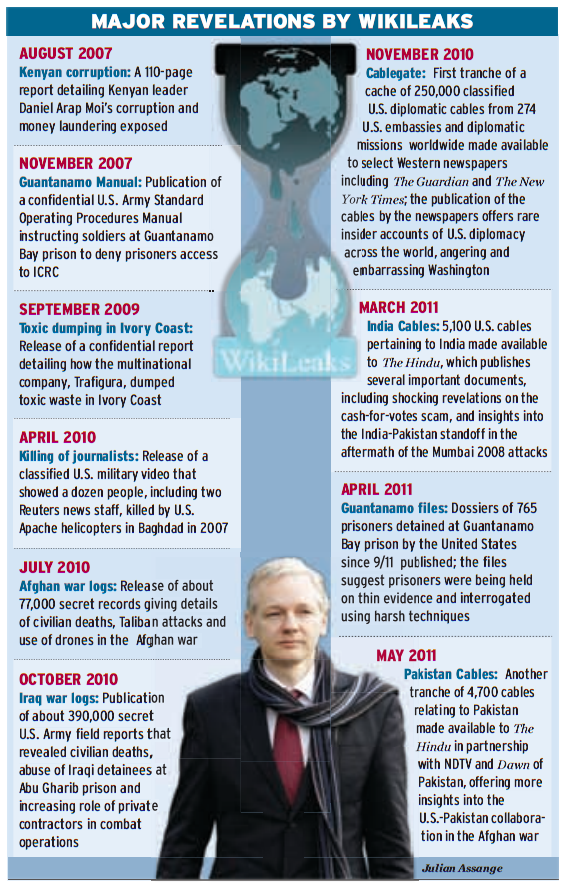31/12/2011
Rereading books
"To be sure, it’s possible to reread because you remain puzzled by a text and obliged to tackle it again in order to figure it out. Most rereading, though, is undertaken for reasons other than exegesis, and it doesn’t involve conscious, purposeful work.”
"Willingness to yield oneself to the text in a way impossible the first time through is, I think, the crucial element in rereading.… The rereader customarily feels less pressure. She can allow herself a state of suspended attention comparable to Keats’s ‘negative capability,’ a condition of receptivity devoid, as the poet says, of irritable reaching after fact and reason — of irritable reaching after anything at all.”
"A book remains the same through time, but the context and personality of the reader don’t. Whether the consequence is nostalgia or embarrassment can be the luck of the draw."
Reader finds "the bewilderment that can occur upon revisiting a once-beloved work and ... the thrill is gone ... trying to understand the changes in the world and in herself that made them disappointing, or worse, after the passage of decades."
"With frequent rereading, a work “comes to inhabit the deep reaches of the brain.” This seems allied to something that the late John Leonard said: “The books we love, love us back.”
More: http://www.insidehighered.com/views/2011/12/21/essay-rereading-patricia-meyer-spacks
### END OF POST ###
www.SPYWRITER.com
30/12/2011
A Digital Book is never finished
But as is often the case with digitization, the boon carries a bane. The ability to alter the contents of a book will be easy to abuse. School boards may come to exert even greater influence over what students read. They'll be able to edit textbooks that don't fit with local biases. Authoritarian governments will be able to tweak books to suit their political interests. And the edits can ripple backward. Because e-readers connect to the Internet, the works they contain can be revised remotely, just as software programs are updated today."
More: http://online.wsj.com/article/SB10001424052970203893404577098343417771160.html
### END OF POST ###
www.SPYWRITER.com
Authors battle the publishing industry
From: http://www.thenational.ae/arts-culture/books/authors-take-control-of-the-publishing-process
No wonder that so many writers give up their pursuit of publication when faced with the barrier that is built by the publishing industry. They ought to read this first:
Ditch the Agent
### END OF POST ###
www.SPYWRITER.com
29/12/2011
Cancerous Weaponry
Chavez, speaking a day after Argentine President Cristina Fernandez de Kirchner was diagnosed with thyroid cancer, said the Central Intelligence Agency was behind chemical experiments in Guatemala in the 1940s and that it’s possible that in years to come a plot will be uncovered that shows the U.S. spread cancer as a political weapon against its critics.
“It’s very difficult to explain, even with the law of probabilities, what has been happening to some of us in Latin America,” Chavez said in a nationally televised speech to the military. “Would it be so strange that they’ve invented technology to spread cancer and we won’t know about it for 50 years?”
“I’m just sharing my thoughts, but it’s very, very, very strange,” Chavez said. “Evo take care of yourself, Correa, be careful, we just don’t know,” he said, referring to Evo Morales and Rafael Correa, the leaders of Bolivia and Ecuador."
More: http://mobile.businessweek.com/news/2011-12-28/chavez-says-u-s-may-be-behind-south-america-leaders-cancer.html
### END OF POST ###
www.SPYWRITER.com
Britain’s "first" double agent
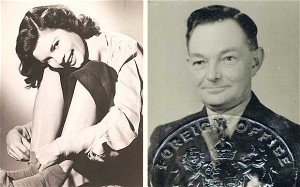
"To his handlers in the Security Service, MI5, he was code-named Snow, while to his masters in German intelligence he was Johnny. Arthur Owens, Welsh nationalist, frustrated inventor, father of a future Hollywood starlet, was an unlikely spy, yet became one of the most important double agents of the Second World War.
The first German agent to be “turned” by British intelligence during the conflict, he was used to entrap other Nazi spies as part of the Double Cross system, possibly the most successful counter-espionage operation ever undertaken.
Run by the Twenty Committee – the Roman numeral XX a play on Double Cross – it resulted in the detection of every German agent in Britain and the feeding of false information, including the bogus location of the D-Day landings, to their masters in Berlin.
Yet, despite Owens’s prominent role in the secret war, he is to this day an enigma, his motives as unclear on the day of his death as they were when he decided to offer his services as a spy. Now, a new book seeks to illuminate corners of that shadowy life and fill in some the gaps in the strange career of Agent Snow."
More: http://www.telegraph.co.uk/news/newstopics/britainatwar/8980777/Britains-first-double-agent-the-spy-who-tricked-us-all.html
### END OF POST ###
www.SPYWRITER.com
28/12/2011
The book publishing pyramid
Translator
Author



Source (pdf): Comparative Income of Literary Translators in Europe www.ceatl.eu/docs/surveyuk.pdf
Authors - the Great Unknown
Among the Romantics, Sir Walter Scott as novelist was called the Great Unknown in reviews. In fact, assigning a range of his copyrights to Archibald Constable in 1820, Scott insisted on a clause stipulating that if his publisher divulged his name as the author of the Waverley novels, he would pay Scott £2,000.
Scott said: "Many things would please people well enough anonymously, which, if they bore me on the title-page, would just give me that sort of ill-name which precedes hanging, and that would be in many respects inconvenient if I thought of again trying a grande opus." When he officially revealed himself in 1827 he called anonymity "the humour or caprice of the time."
More: http://www.latimes.com/news/opinion/commentary/la-oe-1227-folkenflik-anonymous-20111227,0,7045611.story
22/12/2011
Shelf life
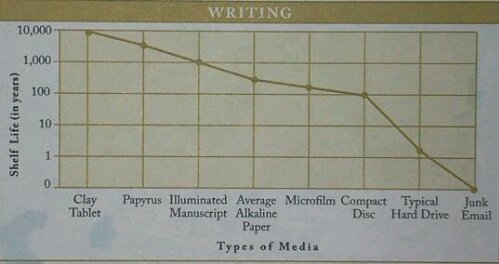 
Shelf life, from a clay tablet, to junk email.
Graph Source: Lapham' Quarterly
### END OF POST ###
www.SPYWRITER.com
20/12/2011
Writers and dogs
"Advice to would-be writers: Do not own a dog. John Steinbeck's setter cost him two months' labor on "Of Mice and Men" in the mid 1930s when one night the pup tore apart the half-finished manuscript. The text on the savaged pages, as we learn in Celia Blue Johnson's "Dancing With Mrs. Dalloway," was so badly mauled that Steinbeck was forced to rewrite a large portion of the book. Jack Kerouac was doing equally well with "On the Road" (which he was typing on sheets of paper taped together to avoid having to reload his typewriter) until his housemate's cocker spaniel chewed up a few feet of the scroll. One almost expects to discover that Joseph Conrad's Chihuahua was responsible for the extensive revisions to "Heart of Darkness." As abetters of literary inspiration, dogs clearly rank very low—unless you happen to be John Steinbeck, who took along a canine companion for "Travels With Charley" in 1960. By then the setter had perhaps wisely been replaced by a poodle." More: http://online.wsj.com/article/SB10001424053111904194604576583201758478310.html
One might wonder whether the above literary works would've turned out the way they did if not for the necesity to re-write. Good dogs!
### END OF POST ###
www.SPYWRITER.com
19/12/2011
Evolution and the pursuit of fiction

"Human beings expend staggering amounts of time and resources on creating and experiencing art and entertainment — music, dancing, and static visual arts. Of all of the arts, however, it is the category of fictional story-telling that across the globe today is the most intense focus of what amounts to a virtual human addiction. A recent government study in Britain showed that if you add together annual attendances in plays and cinema with hours watching television drama, the average Briton spends roughly 6% of all waking life watching dramatic performances. And that figure does not even include books and magazines: further vast numbers of hours spent reading short stories, bodice-rippers, mysteries, and thrillers, as well as so-called serious fictions, old and new. The origins of this obsession with comic and dramatic fictions are lost in remote prehistory, as lost as the origins of language itself. But like language, we know the obsession with fiction is universal: stories told, read, and dramatically or poetically performed are independently invented in all known cultures, literate or not, having advanced technologies or not. Wherever printing arrives, it is used to reproduce fictions. [...]
The universal fascination with fictions is a curious thing. If human beings were attracted only to true narratives, factual reports that describe the real world, the attraction could be attributed to utility. We might imagine that just as early homo sapiens needed to hew sharp adzes and know the ways of game animals, so they needed to employ language accurately to describe themselves and their environment and to communicate truths to each other. Were that the case, there would be no “problem of fiction,” because there would be no fiction: the only alternatives to desirable truth would be unintentional mistakes or intentional lies. Such Pleistocene Gradgrinds would be about as eager to waste linguistic effort creating fables and fictions as they would be to waste their manual skills laboring to produce dull adzes. We can speculate even that the enjoyment of fictions might have put them at an adaptive disadvantage against more Gradgrindish neighboring tribes: homo sapiens would in such a circumstance have evolved to react to untrue, made-up stories much as it reacts to the smell of rotting meat. Now as it happens, this speculation does not accord with facts: the human reaction to fictions, at least when they are properly understood to be fictions, is not aversion, but runs anywhere from boredom to amusement to intense pleasure."
Good news for readers and writers, regardless of what happens to the publishing industry: humans will always pursue the creative expressions, as well as be driven to it!
Sources:
http://www.denisdutton.com/carroll_review.htm
http://www.cbc.ca/news/canada/story/2009/06/02/f-vp-handler.html
16/12/2011
WikiJustice: WikiLeaks meets The Assassination Bureau, Ltd.
Jack London wrote a thriller? I was stumped. So I rushed to my local library to read it. "The Assassination Bureau, Ltd.", is an unfinished novel by Jack London, later completed by Robert L. Fish. The idea of an agency devoted to "extirpating" socially detrimental characters was fascinating, alas, the novel left an unsatisfactory feeling in my reading taste.
My friend's question has haunted me for over a year, when at last world events set a spark in my writerly imagination. What, indeed, if a novelist set out to write a thriller in a similar vein, in the age of WikiLeaks, the Occupy Movement, and the general discontent with the World Order, that we witness today?
In the age of crowdsourcing - a collaboration of countless minds from across boundaries - the idea of a single person (Ivan Dragomiloff in London's novel) deciding arbitrarily who ought to be assassinated ("extirpated"), seemed incompatible. A collaborative effort, on the other hand, was much more alluring.
It was, thus, natural that in the time of social networking the people should decide who is detrimental for the wellbeing of society.
WikiJustice was born.
14/12/2011
Join the most inclusive club

Full-length book readership is dropping, becoming an activity of an ever-narrowing group.
"While virtually anyone who wants to do so can train his or her brain to the habits of long-form reading, in any given culture, few people will want to. And that's to be expected. Serious "deep attention" reading has always been and will always be a minority pursuit.
[...] while there was a period in which extraordinarily many Americans practiced long-form reading, whether they liked it or not, that period was indeed extraordinary and not sustainable in the long run. "We are now seeing such reading return to its former social base: a self-perpetuating minority that we shall call the reading class."
[...] It is more common to come across the person who has known the joys of reading but who can be distracted from them. But even those folks are a small percentage of the population."
More: http://chronicle.com/article/We-Cant-Teach-Students-to/128400/
"Small percentage of the population." Yet it isn't an exlusive club. The doors are open and everyone's welcome!
### END OF POST ###
www.SPYWRITER.com
13/12/2011
Last minute gift ideas | LitBash 52

Gustave Flaubert, France
"An author in his book must be like God in the universe, present everywhere and visible nowhere."
Heinrich Heine, Germany
"Where they have burned books, they will end in burning human beings."
Jane Austen, UK
"It is a truth universally acknowledged that a single man in possession of a good fortune must be in want of a wife."
Arthur C. Clarke, UK
"I can never look now at the Milky Way without wondering from which of those banked clouds of stars the emissaries are coming."
Philip K. Dick, USA
"Don't try to solve serious matters in the middle of the night."
Jose Martiniano de Alencar, Brasil
"Opportunity makes the man."
Jean Richepin, France
"One may live without bread, not without roses."
Max Mell, Austria
Joseph Heller, USA
"When I read something saying I've not done anything as good as Catch-22 I'm tempted to reply, "Who has?""
This concludes the LitBash series - a full year of literary celebrations. Search this blog for LitBash to find additional reading suggestions.
12/12/2011
The double agent spy who came back from the dead
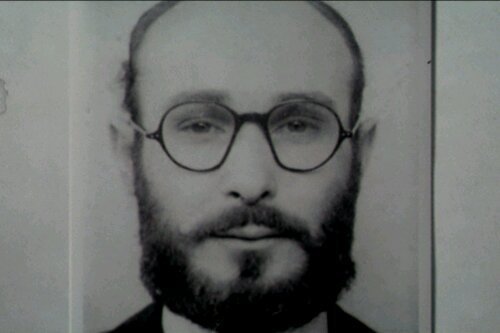
Juan Pujol "Garcia, code-named "Garbo" by his MI5 handlers because he was "the world’s best actor," was the man who more than anyone else convinced Hitler that the Normandy landings were a mere diversionary attack, a feint to distract the Wehrmacht from the real assault that was about to take place 150 miles to the north in the Pas de Calais. So successful was Garbo that the Germans were continuing to reinforce the Pas de Calais even after D-Day, and not committing their full resources to countering the Normandy landings. Although the story of the success of the Operation Overlord deception plans are well known, and Garbo’s vital role well established in history, what is not much known about is what Garbo did after the war".
[...] the story of Garcia’s life of deception did not end with VE Day. After visiting his Abwehr case officer in Spain—who apologized that the Nazis had lost the war and gave him a huge golden handshake in cash, the Iron Cross, and the thanks of the now-defunct Reich—MI5 unsuccessfully tried to recruit Garcia for service against the Russians in the Cold War. The next that anyone ever heard of him was that he had tragically died of a snake bite in Angola in 1949."
Or, did he?
### END OF POST ###
www.SPYWRITER.com
10/12/2011
What is better than sex, according to the CIA
"The first honeytrap in recorded history come in the Bible where the two honeypots in chief were Delilah and Judith. The latter seduced the enemy commander Holofernes and assassinated him, and famously Delilah seduced Samson and got him to reveal the secret of his enormous strength (his hair), before she went on to be immortalised in song by Tom Jones.
In the modern era honeypots (of both sexes) were used by both sides in the Cold War but perhaps because they were ultimately defeated, we know a lot more about the honeypot techniques of the KGB and Stasi (the East German secret police) than we do of the techniques employed by the Americans and British. In the Soviet Union, for instance, “swallow” was the KGB codename for women honeypots, and “raven” the term for men. An ex-CIA officer has claimed that the West “found that offers of money and freedom worked better.”
More: http://www.sabotagetimes.com/people/katia-zatuliveter-and-the-art-of-the-spy-honey-trap/
### END OF POST ###
www.SPYWRITER.com
09/12/2011
This ain't no James Bond - Real Spy Stories

See more: http://www.ugo.com/web-culture/real-spy-stories
### END OF POST ###
www.SPYWRITER.com
07/12/2011
Kim Philby and the woman who made him happy
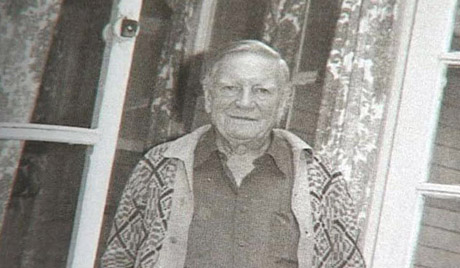
"Historians still argue why [ Kim] Philby, a British aristocrat and a graduate of the Cambridge University, suddenly chose to work for Soviet intelligence services. Was he a man of no principles who was ready to work for anyone who would pay him well – or did he really believe in the ideas of communism? Well, it looks like the second answer is closer to the truth, for it is known that Philby had a fancy for Marxism when he was a student.
[...] in 1933, Kim Philby started to work for Soviet intelligence services. It is by an order of the Soviet intelligence services that he integrated into the UK secret service in 1940.
Famous writer Graham Greene, known for his pro-Soviet sympathies, who himself used to work for the UK intelligence for some time, said that when Kim Philby was at the top of his career, practically every step and every plan of Western secret services immediately became known to the Soviet services.
“For the last 25 years of his life, Kim Philby lived in Moscow – but, at first, his life here was not simple. The Soviet authorities and Philby himself were afraid that he might be assassinated – and he had to live a very secluded life, until a fair woman appeared"...
More: http://english.ruvr.ru/2011/12/07/61745969.html
### END OF POST ###
www.SPYWRITER.com
The Tunnel-digging Spy
Peter Lunn, "as a gentleman spy in the early Cold War years, he pioneered the idea of digging tunnels under Soviet-controlled zones to facilitate telephone tapping
After the war Lunn was posted as head of the MI6 station in the divided city of Vienna, with the official title of Second Secretary at the British embassy. Though he was once described by the espionage writer Richard CS Trahair as having a “slight build and blue eyes” and speaking “in a soft voice with a lisp”, every inch the gentleman spy, he also had a razor-sharp mind.
In 1948 Graham Greene, who had also worked for SIS, went to Vienna to research material for the screenplay of The Third Man (1949). He discovered the existence of a force policing a vast network of sewers under the city which allowed agents to pass from one zone of occupation to another.
Lunn too was interested in the city’s subterranean world. According to David Stafford, in his book Spies Beneath Berlin, Lunn realised that “cables linking the Red Army to Soviet units in Austria ran through the British and French sectors [of Vienna]”. If he could tap these communications, “he would be the first to know if Stalin gave the order to invade Western Europe”.
Operation Conflict, as Lunn’s eavesdropping scheme was known, yielded a wealth of intelligence about Soviet operations in Eastern Europe between 1948 and 1951."
### END OF POST ###
www.SPYWRITER.com
06/12/2011
Christmas party like no other | LitBash 51

Hans Hellmut Kirst, Germany
"All you have to do is anesthetize the masses by telling them they're an elite, that they've got a mission, that they're making history, that they're fulfilling their destiny and fighting for a better world — and they swallow it like lambs — even when a guttersnipe says it."
Carmen Martin Gaite, Spain
"There's no way of calculating how many ramifications a story will take on once one spies a gleam of attention in another's eyes."
Eugene Sue, France
"Virtue often trips and falls on the sharp-edged rock of poverty."
Albert Steffen, Switzerland
Alfred de Musset, France
"Great artists have no country."
Maurice Leblanc, France
Alexandre Dumas, France
"It is sometimes essential to government to cause a man’s disappearance without leaving any traces, so that no written forms or documents may defeat their wishes."
Anthony Trollope, UK
"I hold that gentleman to be the best dressed whose dress no one observes. I am not sure but that the same may be said of an author's written language."
Marin Sorescu, Romania
Thornton Wilder, USA
"Literature is the orchestration of platitudes."
Jose Donoso, Chile
"I once asked the servants why none of them had blue eyes like my aunts. They replied that only the ladies could afford to buy the blue glass cups in which they kept their eyes at night to make them more blue and beautiful, and furthermore, if we went on asking silly questions, the rats that steal the faces of inquisitive children in order to wear them as masks would come to take us to live in the twilit world between the ceiling and the roof where no one ever dared to go."
Luigi Pirandello, Italy
"Woe to him who doesn't know how to wear his mask, be he king or pope!"
Artur Nils Lundkvist, Sweden
05/12/2011
The Spy Files
It sounds like something out of Hollywood, but as of today, mass interception systems, built by Western intelligence contractors, including for ’political opponents’ are a reality.
International surveillance companies are based in the more technologically sophisticated countries, and they sell their technology on to every country of the world. This industry is, in practice, unregulated. Intelligence agencies, military forces and police authorities are able to silently, and on mass, and secretly intercept calls and take over computers without the help or knowledge of the telecommunication providers. Users’ physical location can be tracked if they are carrying a mobile phone, even if it is only on stand by.
Intelligence companies such as VASTech secretly sell equipment to permanently record the phone calls of entire nations."
MORE: http://wikileaks.org/the-spyfiles.html
02/12/2011
Ian Fleming and American intelligence
"On 27th June 1941, in Washington D.C., Lt-Commander Ian Fleming RNVR drafted a short ‘Memorandum to Colonel Donovan’ on how to structure and staff the headquarters of his new American intelligence agency, COI, to be set up by Christmas 1941.
Fleming commented that President Roosevelt was ‘very enthusiastic’ and supportive of Wild Bill, but warned: ‘the rumour that Donovan is a British nominee and a hireling of British S.I.S. is spreading and should be carefully watched.’"
More: http://blog.oup.com/2011/12/fleming-3/
### END OF POST ###
www.SPYWRITER.com
01/12/2011
Spies you don't hear about
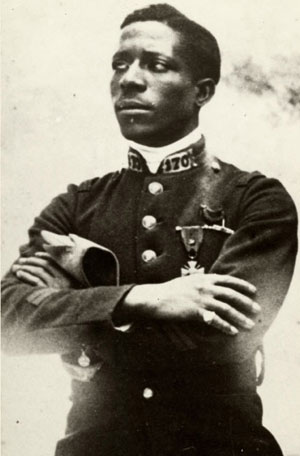
"Born in Columbus, Georgia, in 1894, Eugene Jacques Bullard stowed away to Europe as a teenager, earning money as a prizefighter and interpreter. When World War I erupted he joined the French army and ultimately became the world’s first black fighter pilot. He later married the daughter of a French countess, opened a nightclub in Paris and hobnobbed with the likes of Josephine Baker, Louis Armstrong and Ernest Hemingway.
Bullard served France once again during World War II, joining the resistance movement and using his fluency in German to spy on Nazi troops who frequented his establishment. (His German clients apparently spoke freely in front of him, believing that nonwhites were incapable of understanding their language.)
Bullard later helped defend the city of Orléans, sustained debilitating injuries and was medically evacuated along with his two daughters to the United States. A hero in his adoptive country, Bullard had to rebuild his life in his homeland, where he worked for many years as an elevator operator in New York City. He died at age 67 in 1961, two years after France named him a Knight of the Legion of Honor."
More spies: http://www.history.com/news/2011/12/01/10-spies-who-arent-household-names/
### END OF POST ###
www.SPYWRITER.com
30/11/2011
Why read classic literature?
"Classic literature is prodigiously important for a students development, there is a reason these works are labeled ‘classics’, that’s because they’re timeless, effortless, full of rich vivid words put together in exactly the right order so to create majestic images in the readers mind. Those who take the time to read some classic literature will benefit in many ways. Firstly, it will undoubtedly expand your vocabulary, bring forth new and exciting ways of thinking, give you a greater understanding of history and improve your writing skills."
More: http://m.digitaljournal.com/article/314972
Get your clasics from: Gutenberg.org
### END OF POST ###
www.SPYWRITER.com
Book picks for the week | LitBash 50

Born this week:
Stefan Zweig, Austria
"It is usual for a woman, even though she may ardently desire to give herself to a man, to feign reluctance, to simulate alarm or indignation. She must be brought to consent by urgent pleading, by lies, adjurations, and promises. I know that only professional prostitutes are accustomed to answer such an invitation with a perfectly frank assent - prostitutes, or simple-minded, immature girls."
Alberto Moravia, Italy
"An uncertain evil causes anxiety because, at the bottom of one's heart, one goes on hoping till the last moment that it may not be true; a certain evil, on the other hand, instills, for a time, a kind of dreary tranquillity."
Konstantin Simonov, Russia
"I don't know how others may see it, but for me, human friendship is the most precious feeling on earth. That feeling has its greatest strength when times are hard; and in war, times are very hard. "
Louisa May Alcott, USA
"Women have been called queens for a long time, but the kingdom given them isn't worth ruling."
Jonathan Swift, UK
"I have one word to say upon the subject of profound writers, who are grown very numerous of late; and I know very well the judicious world is resolved to list me in that number. I conceive therefore, as to the business of being profound, that it is with writers as with wells - a person with good eyes may see to the bottom of the deepest, provided any water be there: and often when there is nothing in the world at the bottom besides dryness and dirt, though it be but a yard and a-half under-ground, it shall pass, however, for wondrous deep upon no wiser reason than because it is wondrous dark."
Mark Twain, USA
"I haven't a particle of confidence in a man who has no redeeming petty vices whatsoever."
Lucy Maud Montgomery, Canada
Joseph Conrad (Born Józef Korzeniowski), Poland / UK
"It's only those who do nothing that make no mistakes."
Conrad Meyer, Switzerland
Oscar Wilde, UK
"I have the simplest tastes. I am always satisfied with the best."
Donatien Alphone Francois de Sade (Marquis de Sade), France
The law which attempts a man's life [capital punishment] is impractical, unjust, inadmissible. It has never repressed crime—for a second crime is every day committed at the foot of the scaffold."
Namik Kemal, Turkey
Edmond Rostand, France
"To joke in the face of danger is the supreme politeness, a delicate refusal to cast oneself as a tragic hero."
Robert Louis Stevenson, UK
"In every part and corner of our life, to lose oneself is to be a gainer; to forget oneself is to be happy."
Gustav Meyrink, Austria
"I have not let myself be stultified by science, whose highest goal is to furnish a `waiting room', which it would be best to tear down."
What hacker-activists have in common with secret services
"WikiLeaks raises the question as to what hackers have in common with secret services, since an elective affinity between the two is unmistakable. The love-hate relationship goes back to the very beginning of computing. One does not have to be a fan of German media theorist Friedrich Kittler or, for that matter, conspiracy theories, to acknowledge that the computer was born out of the military-industrial complex. From Alan Turing's deciphering of the Nazi Enigma code up to the role played by the first computers in the invention of the atomic bomb, from the cybernetics movement up to the Pentagon's involvement in the creation of the Internet – the articulation between computational information and the military-industrial complex is well established. Computer scientists and programmers have shaped the information revolution and the culture of openness; but at the same time they have also developed encryption ("crypto"), closing access to data for the non-initiated. What some see as "citizen journalism" others call "info war".
WikiLeaks is also an organization deeply shaped by 1980s hacker culture, combined with the political values of techno-libertarianism that emerged in the 1990s. The fact that WikiLeaks was founded – and to a large extent is still run – by hard-core geeks is essential to understanding its values and moves. Unfortunately, this comes together with a good dose of the less savoury aspects of hacker culture. Not that idealism, the desire to contribute to making the world a better place, could be denied to WikiLeaks: on the contrary. But this brand of idealism (or, if you prefer, anarchism) is paired with a preference for conspiracies, an elitist attitude and a cult of secrecy (never mind condescension). This is not conducive to collaboration with like-minded people and groups, who are relegated to being the simple consumers of WikiLeaks output. The missionary zeal to enlighten the idiotic masses and "expose" the lies of government, the military and corporations is reminiscent of the well-known (or infamous) media-culture paradigm from the 1950s."
MORE: http://www.eurozine.com/articles/2010-12-07-lovinkriemens-en.html
# END OF POST #
www.SpyWriter.com
27/11/2011
The Real 'James Bond'
"The real James Bond was an “incorrigible raconteur” with a penchant for pretty women and fast cars [...]
Commander Wilfred Dunderdale was known as “Biffy” because of his prowess as a boxer in the Royal Navy at the end of the First World War, according to the first official history of the service.
A picture from a false identity card shows he lacked his fictional counterpart’s good looks but Dunderdale is said to have become close friends with Ian Fleming, author of the James Bond novels, in later life, and claimed to recognise some of his own stories in the books."
More: http://www.telegraph.co.uk/news/uknews/defence/8017038/Real-James-Bond-revealed-in-MI6-archives.html
### END OF POST ###
www.SPYWRITER.com
25/11/2011
Shakespeare helps doctors

"Doctors should brush up on their Shakespeare to help improve their understanding of how the mind can affect the body, according to an unusual study.
[...] many doctors don't realise how many physical symptoms can be caused solely by psychological problems.
'Many doctors are reluctant to attribute physical symptoms to emotional disturbance, and this results in delayed diagnosis, over-investigation, and inappropriate treatment.
'They could learn to be better doctors by studying Shakespeare. This is important because the so-called functional symptoms are the leading cause of general practitioner visits and of referrals to specialists."
### END OF POST ###
www.SPYWRITER.com
24/11/2011
A Stasi informant in every family
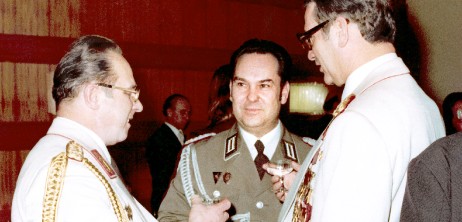
"This week, the commission for the Stasi files will publish a handbook on the HVA, the Stasi branch that handled foreign intelligence and was run by legendary spymaster Markus Wolf. The book offers new insight into the Stasi's work in West Germany, making clear for the first time just how purposefully and extensively the East German intelligence service had West German politics and society in its sights.
It's now possible to reconstruct in unprecedented detail where and how the Stasi cast its nets. The organization had 149 informants active just in Bonn, the former West German capital. There were 542 in West Berlin.
It seems the HVA recruited most of these spies from industrial sectors, as a way of obtaining Western technological knowledge. It also maintained excellent connections in the center-left Social Democratic Party, where 78 unofficial collaborators and other contacts kept East Berlin up to date, 13 of them serving as sources of information on activities within the party's executive committee. The Stasi was also well informed on internal matters in unions, churches and universities."
Read More: http://m.spiegel.de/international/germany/a-799335.html#spRedirectedFrom=www
### END OF POST ###
www.SPYWRITER.com
23/11/2011
Brainless spies and criminals rejoice
An "example of putting brain waves into practice in a practical way is Brain Fingerprinting.
In Brain Fingerprinting, it is believed that when someone commits a crime, the event is stored as a memory. When the perpetrator is presented with evidence of the crime, the memory is triggered, creating a neurological response.
If the perpetrator is attached to a machine similar to an EEG, then this response can be recorded.
Brain Fingerprinting is still in its early stages, but is being seriously evaluated by the FBI as part of deception detection and profiling.
If this technique is perfected and coupled with Clark’s sensor technology, individuals such as criminals, and even spies could be easily identified.
Taking this technology a step further, it is conceivable that technology such as this could be used by a government to monitor the brain wave activity of its people or to detect espionage. Intelligence agents could use the technology to spy on foreign diplomats or scientists."
More: http://www.topsecretwriters.com/2011/11/could-us-intelligence-detect-brain-waves-to-spy/
### END OF POST ###
www.SPYWRITER.com
Camp 020, MI5's secret interrogation center
"The silence [...] gave little indication of the intensity and importance of the work being done in the building known as Camp 020, MI5’s secret interrogation center. Within those walls, captured German agents were questioned under the command of a ferociously tempered British officer named Lieutenant Colonel Robin Stephens. Boorish, disdainful of the non-English but half-German himself, Stephens was nicknamed “Tin Eye” for the monocle he was said to wear even when he slept. He had a record of breaking down even the most hardened of German spies.
“Figuratively, a spy in war should be at the points of a bayonet,” wrote Stephens, who insisted that he be addressed as the “commandant.” Yet he was adamant about one thing at Camp 020. “Violence is taboo,” he wrote, “for not only does it produce answers to please, but it lowers the standard of information.” In his instructions for interrogators, Stephens wrote, “Never strike a man. In the first place it is an act of cowardice. In the second place, it is not intelligent. A prisoner will lie to avoid further punishment and everything he says thereafter will be based on a false premise.”
Read more: http://blogs.smithsonianmag.com/history/2011/11/the-monocled-world-war-ii-interrogator/
### END OF POST ###
www.SPYWRITER.com
22/11/2011
Re-Kindling the fire in your heart | LitBash 49

Voltaire, France
"What we find in books is like the fire in our hearths. We fetch it from our neighbor's, we kindle it at home, we communicate it to others, and it becomes the property of all."
George Eliot, UK
"I'm proof against that word failure. I've seen behind it. The only failure a man ought to fear is failure of cleaving to the purpose he sees to be best."
Andre Gide, France
"One doesn't discover new lands without consenting to lose sight, for a very long time, of the shore."
Charles Vildrac, France
Mats Traat, Estonia
Carlo Collodi, Italy
Lope de Vega, Spain
Eugene Ionesco, France / Romania
"No society has been able to abolish human sadness, no political system can deliver us from the pain of living, from our fear of death, our thirst for the absolute. It is the human condition that directs the social condition, not vice versa."
Jack London, USA
"A bone to the dog is not charity. Charity is the bone shared with the dog, when you are just as hungry as the dog."
Aldous Huxley, UK
"Facts do not cease to exist because they are ignored."
C. S. Lewis, UK
"100 per cent of us die, and the percentage cannot be increased."
Anthony Burgess, UK
Andre Malraux, France
"One cannot create an art that speaks to me when one has nothing to say."
Johannes Vilhelm Jensen, Denmark
Upton Sinclair, USA
"American capitalism is predatory, and American politics are corrupt: The same thing is true in England and the same in France; but in all these three countries the dominating fact is that whatever the people get ready to change the government, they can change it."
Yukio Mishima, Japan
"There is no virtue in curiosity. In fact, it might be the most immoral desire a man can possess."
Arnold Zweig, Germany
Alexandre Dumas, France
"It is sometimes essential to government to cause a man’s disappearance without leaving any traces, so that no written forms or documents may defeat their wishes. It has always been so and always will be. Governments change yet they remain all alike."
Eugene O'Neill, USA
"One may not give one's soul to a devil of hate — and remain forever scatheless."
19/11/2011
Pirate my books, please
"In the former Soviet Union, in the late Fifties and Sixties, many books that questioned the political system began to be circulated privately in mimeographed form. Their authors never earned a penny in royalties. On the contrary, they were persecuted, denounced in the official press, and sent into exile in the notorious Siberian gulags. Yet still they continued to write.
Why? Because they needed to share what they were feeling. From the Gospels to political manifestos, literature has allowed ideas to travel and even to change the world. I have nothing against people earning money from their books; that’s how I make my living. But look at what’s happening now. The publishing industry is trying to have laws brought in against “intellectual piracy”. Depending on the country, the “pirate” — that is, the person disseminating art on the Internet — could end up in jail. And how do I feel about this? As an author, I should be defending “intellectual property”, but I’m not. Pirates of the world unite and pirate everything I’ve ever written!"
More: http://www.deccanchronicle.com/editorial/op-ed/pirate-my-books-please-663
Publishing is a matter of choice; writing is not (at least not for many writers).
Thrillers, Suspense, Espionage, Conspiracy: SPYWRITER.com
America, the House of Mirrors
"In this house of mirrors where endless war has made guilt and innocence or even facts irrelevant, the U.S. has left the realm of science and empiricism and entered a realm more mystical than real. It is a realm where ideology dictates plans and programs and not logic and empirical evidence. It is a realm where ideology dictates who dies and who lives and is populated by men and women who can neither be understood nor reasoned with outside the confines of their own internal and hermetically sealed logic.
From its inception during World War II, America’s military/intelligence apparatus has acted more as a subculture of America’s ruling elite than a bureaucracy dedicated to the nation’s security. It was said of America’s first spy agency the OSS that its initials stood for Oh-So-Social because of its abundant staffing with New York’s high society blue bloods. Victor Marchetti and John D. Marks even titled their 1974 book on their life in the CIA and Foreign Service as The CIA and the Cult of Intelligence.
But over the last forty years and especially since the events of 9/11, that “Cult,” and its sister organizations in the military/intelligence community have emerged from behind the curtain to become a ubiquitous and forbidding presence.
In effect, 1974’s American “Cult” of intelligence has grown to become in 2011 the dominant American “Cult-ure.” But what that culture really is and where it’s leading us remains a frightening proposition that each and every American needs to understand."
Continue: http://m.officialwire.com/main.php?action=posted_news&rid=306786
Thrillers, Suspense, Espionage, Conspiracy: SPYWRITER.com
18/11/2011
The kitchen device that's killing you
"Microwaves were first invented by the Nazis in order to provide a method of cooking for their troops during World War II. Seeing as though these microwave ovens have been experimental and new, the US War Department was assigned to research these new devices shortly after the war.
Turns out, the U.S. didn’t really perform the extensive research necessary for the new invention. Instead, the Russians decided to tackle the issue with extreme force.
Intrigued by this new device, the Russians conducted in-depth research to discover the biological effects they might possess. The results were staggering enough to lead to a ban of the new device in the Soviet Union. The ban, however, was later lifted during Perestroika, the political movement responsible for the restructuring of the Soviet Union.
The findings include:
* Carcinogenic substances were formed from the microwaving of nearly all foods tested
* Microwaving milk and grains resulted in carcinogenic substances being formed through the conversion of amino acids
* Microwaving prepared meats caused cancer-causing agents such as d-Nitrosodienthanolamines to form
* Microwaving fruits as a method of thawing resulted in the conversion of glucoside and galactoside fractions into carcinogenic substances
* Extremely short exposure of raw, cooked, or frozen vegetables converted their plant alkaloids into carcinogens
* Carcinogenic free radicals were formed in microwaved plants, especially root vegetables
* Structural degradation leading to decreased food value was found to be 60 to 90 percent overall for all foods tested, with significant decreases in bioavailability of B complex vitamins, vitamins C and E, essential minerals, and lipotropics
Twenty years of the Russian research led to the international warning about the damaging biological and environmental effects microwaves possess. The warning also included other similar frequency electronic devices such as cell phones."
More: http://naturalsociety.com/the-dangerous-truth-behind-microwaves/
Stalin’s deadly spy in the Fourth Internationale
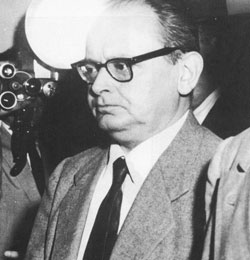
"Mark Zborowski was the most notorious and deadly agent of the Soviet secret police (the GPU) inside the Trotskyist movement in the 1930s. He played a central role in setting up leading members of the Fourth International, including Trotsky’s son, Leon Sedov, for assassination. Zborowski survived his victims by many decades. Arriving in the United States in 1941, he made the transition from Stalin’s leading anti-Trotskyist agent to a highly successful academic in prestigious American universities. Zborowski’s eventual exposure as a Stalinist agent in the 1950s only temporarily derailed his academic career. But in 1975, as a result of the International Committee of the Fourth International’s investigation into the events leading up to the assassination of Trotsky in 1940, Zborowski’s crimes were brought to public attention. The GPU assassin was photographed in August 1975 in San Francisco outside his home by David North, a leading member of the Workers League (predecessor of the Socialist Equality Party). During the decade that followed, the International Committee’s investigation into the crimes of the GPU against the Trotskyist movement—whose findings were published under the title “Security and the Fourth International”—produced a wealth of new information about Zborowski’s activities. In June 1990, two months after Zborowski’s death, the International Committee published an obituary which reviewed the murderous career of this Stalinist agent. This obituary is republished below":
16/11/2011
The importance of literature
"Literature is something on the gut level which can help societies and nations sense what is really happening with them and what is about to follow. Literature helps us diagnose the diseases of society and, to some extent, prescribe ways to cure them.
The importance of literature is that it turns what we know into what we feel. Thus, a concept no longer remains a concept. It becomes an experience. To attach oneself to a concept requires a deeper understanding of life. But when a concept becomes an experience, it is easier for people to relate to it. It means literature helps ordinary folks understand the world in a way it cannot be understood without deep insight.
Literature is also important because it turns the abstract into concrete. When we try to draw a picture of an exemplary man in our mind, we face a lot of difficulty. But Dostoevsky has made this job easier for us. After reading his novel Idiot, for instance, we can understand better what an exemplary figure should be like. He has beautifully portrayed how a simple-hearted man acts and reacts."
More: http://www.thenews.com.pk/TodaysPrintDetail.aspx?ID=72377&Cat=9
Brighten up the darkest autumn | LitBash 48

Short days? Long evenings? Nothing on TV? A book brightens up the most dreary of days, and helps pass the longest evening. Here are some writers who were...
Hussein Taha, Egypt
Astrid Lindgren, Sweden
"There is very little you can beat into a child, but no limit to what you can hug out of it."
Gerhart Hauptmann, Germany
"Poetry evokes out of words the resonance of the primordial world."
Heinz Piontek, Germany
Rene Arcos, France
Henri Bosco, France
Jeannie Ebner, Austria
Klaus Mann, Germany
"Work is the never ending burden without which all other burdens would be unbearable."
Selma Lagerlof, Sweden
"It is a strange thing to come home. While yet on the journey, you cannot at all realize how strange it will be."
Nadine Gordimer, South Africa
"Writing is making sense of life. You work your whole life and perhaps you've made sense of one small area."
Wilhelm Raabe, Germany
"A man without imagination is like a bird without wings."
Albert Engstrom, Sweden
Marcel Proust, France
"Even in the most insignificant details of our daily life, none of us can be said to constitute a material whole, which is identical for everyone, and need only be turned up like a page in an account-book or the record of a will; our social personality is created by the thoughts of other people."
Leo Tolstoy, Russia
"Subtleties, allegories, humorous fancies, the wildest generalizations abound, but nothing simple and clear, nothing going straight to the point, that is, to the problem of life.
Besides these graceful frivolities, our literature is full of simple nastiness and brutality, of arguments that would lead men back in the most refined way to primal barbarism, to the principles not only of the pagan, but of the animal life, which we have left behind 5,000 years ago."
Leonardo Sciascia, Italy
"I hate and detest Sicily in so far as I love it, and in so far as it does not respond to the kind of love I would like to have for it."
12/11/2011
The largest Nazi espionage operation in North America
“Bermuda proved a geographically convenient location for the scrutiny of mail exchanged between North America and Europe. All correspondence sent to or from Europe was examined by Imperial Censorship staff based at the Hamilton Princess Hotel, and suspect items were intercepted and photographed.
“This led to the identification of several German spies, among them George Nicolaus and Joachim Ruge.”
But its most celebrated case involved the Bermuda censorship operations playing a key role in the uncovering of the largest Nazi espionage operation in America.
It was operated by Kurt Frederick Ludwig in 1940-41 and the network became known as the “Joe K” spy ring because it was the code name used in letters sent to Berlin addresses giving information on Allied shipping in New York Harbour and other sensitive military information. Details of the ship movements the ring provided were passed on to Nazi submarines operating in the Atlantic and a number of UK-bound vessels were torpedoed as a result."
More: http://bernews.com/2011/11/bermudas-second-world-war-espionage-role/
09/11/2011
The Cloak and Dagger Group of Snoopers
"Those who don't know the US system are shaken at what is going round the world. But there is a well laid background, reason and calculated goals to it.
The most crucial link of the US government and the rest of the world is its CIA, originally called the Strategic Services Unit (SSU) whose main objective of secret action aimed at understanding or subverting what goes on abroad on behalf of the US. President Harry Truman in his briefing notes in 1946 called it 'Cloak and Dagger Group of Snoopers.'
It started as a SSU until being renamed by the National Security Act on September, 18, 1947. During the cold war it engaged in murders of foreign leaders, staging coups, bribing political and business leaders. It was the CIA that bought off former fascists and war in Japan who were in jail after World War 2 and helped build the corrupt Liberal Democratic Party (LDP) that ruled Japan for over five decades. In Italy, under the guise of fighting the communists, the CIA bought off the elections of 1948 with suitcases of cold cash in four stars hotels in Rome and the Vatican. The CIA's standard operating procedures in peace times have been exchanging information for money, wine and food at cocktails and dinners, paid foreign trips especially to their preferred countries."
More: http://www.newvision.co.ug/D/8/459/765749
08/11/2011
How to choose a book | LitBash 47

Are you overwhelmed by bookstore shelves that are brimming with books? Don't know which book to pick? Use lists, such as one with writers who were...
Born this week:
Albert Camus, France
"A character is never the author who created him. It is quite likely, however, that an author may be all his characters simultaneously."
William Wharton, Germany
Bram Stoker, UK
"I am Dracula, and I bid you welcome."
Margaret Mitchell, USA
Peter Weiss, Germany
"I could buy myself paper, a pen, a pencil and a brush and could create pictures whenever and wherever I wanted. ... That evening, in the spring of 1947, on the embankment of the Seine in Paris, at the age of thirty, I saw that it was possible to live and work in the world, and that I could participate in the exchange of ideas that was taking place all around, bound to no country."
Peer Hultberg, Denmark
Ivan Turgenev, Russia
Imre Kertesz, Hungary
"If one takes the path of success, then one ends up either successful or unsuccessful, there is no third alternative."
Carl Sagan, USA
"Humans — who enslave, castrate, experiment on, and fillet other animals — have had an understandable penchant for pretending animals do not feel pain."
Friedrich von Schiller, Germany
"Did you think the lion was sleeping because he didn't roar?"
Max Mell, Austria
Arnold Zweig, Germany
Fyodor Dostoevsky, Russia
"Granted I am a babbler, a harmless vexatious babbler, like all of us. But what is to be done if the direct and sole vocation of every intelligent man is babble, that is, the intentional pouring of water through a sieve?"
Kurt Vonnegut, USA
"Well, I've worried some about, you know, why write books ... why are we teaching people to write books when presidents and senators do not read them, and generals do not read them. And it's been the university experience that taught me that there is a very good reason, that you catch people before they become generals and presidents and so forth and you poison their minds with ... humanity, and however you want to poison their minds, it's presumably to encourage them to make a better world."
Carlos Fuentes, Mexico
"What the United States does best is to understand itself. What it does worst is understand others."
Michael Ende, Germany
"Time is Life."
Robert Louis Stevenson, UK
"In anything fit to be called by the name of reading, the process itself should be absorbing and voluptuous; we should gloat over a book, be rapt clean out of ourselves, and rise from the perusal, our mind filled with the busiest, kaleidoscopic dance of images, incapable of sleep or of continuous thought. The words, if the book be eloquent, should run thenceforward in our ears like the noise of breakers, and the story, if it be a story, repeat itself in a thousand coloured pictures to the eye."
Died this week:
Carl Erik Soya, Denmark
Ken Kesey, USA
"The job of the writer is to kiss no ass, no matter how big and holy and white and tempting and powerful."
Emmuska Orczy, Hungary / UK
"I have so often been asked the question: "But how did you come to think of The Scarlet Pimpernel?" And my answer has always been: "It was God's will that I should."
Guido Piovene, Italy
Elemir Bourges, France
Politics and literature
Should literature tackle political issues? France's prestigious literary prize awarded for Alexis Jenni's book makes it a resounding - Yes.
"It’s important to exorcise the unpleasant parts of history through literature, and not through political discourse, which doesn’t help at all. Thanks to fiction, we can probe deep into these problems and touch people’s consciences and hearts."
"It’s often said that literature has no place treating politics; that writers compromise fiction’s true potential as art when they turn their attentions to the big affairs of the day. Isn’t it more likely, though, that a bad book is a bad book, whether it’s an anti-war novel, a political thriller or chick-lit? Done right, politicised fiction soars, as Jenni’s achievement shows." From: http://mhpbooks.com/42574/the-goncourt-prize-should-fiction-and-politics-mix/
Or, as Stendhal put it: “Politics in a work of literature is like a gunshot at a symphony, it adds an element of thugness and simplicity, and yet we cannot ignore it. Although for many reasons we would prefer to remain silent about some of the subjects discussed herein, unfortunately we must talk about these nasty things."
06/11/2011
Why spies hang around toilets
"Deep inside the Central Intelligence Agency is a unit dedicated to uncovering the true physical and mental states of world leaders. The Medical and Psychological Assessment Cell, or MPAC, employs or consults physicians, sociologists, political scientists, and cultural anthropologists to examine the conditions of top officials.
Agents will collect medical waste items, which can yield important information about someone’s medical condition.
“No discarded bandage or something like a syringe should be discounted because you can draw DNA and blood types and you can do some examination on the contents of even a discarded band-aid to try to determine perhaps what’s wrong with that person. So, as unseemly as that may sound, this is what intelligence services do".
Then there are sort of apocryphal stories, which probably have some truth to it, that they have been able to surreptitiously obtain bodily fluids. And there are sort of several well-known examples of diverting plumbing in [the presidential guest residence] Blair House, or other places abroad where they are able to obtain stool and urine samples."
More: http://www.voanews.com/english/news/usa/Spies-Track-Physical-Illnesses-of-Foreign-Leaders-130222673.html
05/11/2011
How the CIA, NSA shape the minds of America's children
"Worried about what your children are getting into while surfing the Web? Well, how about organizations involved in intelligence gathering and espionage?
Despite their very adult missions, both the Central Intelligence Agency and the National Security Agency have sections specifically for youngsters.
Communication expert Joanne Cantor said having games indicates that an organization wants kids to have a positive image of them.
Cantor said companies that see children as a target audience, such as fast-food chains or sweetened cereal producers, “have all sorts of games on their websites to make the kids like them and to sort of recruit them at young ages, and that’s very controversial among people who consider marketing to kids as unfair.”
"We realize the importance of helping to educate the nation’s youth and raise awareness about the National Security Agency’s core values, vision, and critical mission.” From: http://abcnews.go.com/blogs/politics/2011/11/cia-and-nsa-websites-invite-children/
Basically the CIA is building a US version of Komsomol:
"The Bolsheviks saw Russian youth as ideologically promising because it was more removed[]. If the Party could create a mass of indoctrinated, obedient young people, the regime would be stable for years to come. Therefore, the Bolsheviks attempted to influence and politicize every aspect of youth culture, both public and private."
Are you worried about what your children are getting into while surfing the Web? You should, because soon they'll be flying the drones that kill Pakistani children. It's all a game.
03/11/2011
Occult in Espionage
"Occult influences in modern intelligence culture can be revealed historically, iconically and through a review of language used to describe covert communications. The use of encoded language to conceal information concerning spiritual sciences and the acquisition of supernatural human performance capabilities (against religious prosecution and abuse by underdeveloped persons of questionable character) predates the use of encryption for political purposes only. A crypt
, for example, describes an underground burial vault in the modern use of the term. In this sense, to “encrypt” is to bury a person, whereas “decryption” implies the raising of the dead from their graves.
These same influences are seen in agency logos. The former British Military Intelligence (MI5) logo, for example, includes the Eye of Providence
or “All-Seeing Eye” in the capstone of a pyramid, reflecting the reverse of the Great Seal of the United States and that symbol’s current use on the back of the US one dollar bill. From this perspective, even the acronym CIA (Central Intelligence Agency) can be interpreted as an example of both applied transposition and substitution ciphers revealing CIA->ACI-> All C-ing I->All-Seeing Eye.
In the most archaic sense, the “All-Seeing Eye” represents a performance characteristic of clairvoyant persons, whose practice of mental concentration promotes Ajina Chakra (“Third Eye”) activation via the ascent of their dormant or sleeping microcosmic potential (Sanskritkundalini), allowing lucid perceptions of intelligence from beyond the constraints of time, designating those individuals as seer, soothsayer or sorcerer."
More: http://m.examiner.com/exVancouver/pm_99243/contentdetail.htm?contentguid=9Lcxfpqv
02/11/2011
Things cats and people have in common | LitBash 46

Hermann Broch, Austria
"The maker of kitsch does not create inferior art, he is not an incompetent or a bungler, he cannot be evaluated by aesthetic standards; rather, he is ethically depraved, a criminal willing radical evil. And since it is radical evil that is manifest here, evil per se, forming the absolute negative pole of every value-system, kitsch will always be evil, not just kitsch in art, but kitsch in every value-system that is not an imitation system."
Ilse Aichinger, Austria
"The distance to the corner shops of childhood becomes unfathomable, immeasurable; the candy bars have changed. And change has changed."
Gunter de Bruyn, Germany
Moa Martinson, Sweden
Andre Malraux, France
"The sons of torture victims make good terrorists."
Ciro Alegria, Peru
Rene Maran, Martinique
"Hatred is one long wait."
Robert Musil, Austria
"I am not only convinced that what I say is false, but also that what one might say against it is false. Despite this, one must begin to talk about it. In such a case the truth lies not in the middle, but rather all around, like a sack, which, with each new opinion one stuffs into it, changes its form, and becomes more and more firm."
James Jones, USA
"I don't think that combat has ever been written about truthfully; it has always been described in terms of bravery and cowardice. I won't even accept these words as terms of human reference any more. And anyway, hell, they don't even apply to what, in actual fact, modern warfare has become."
Gertrud von Le Fort, Germany
Alexander Bek, Russia
Hans Erich Nossack, Germany
"Why go on? I mean, why record all this? Wouldn’t it be better to surrender it to oblivion for all time? For those who were there certainly don’t have to read it. And the others, and those who will come later? What if they read it only to enjoy something strange and uncanny and to make themselves feel more alive? Does it take an apocalypse to do that? Or a descent into the underworld?"
William Styron, USA
"A great book should leave you with many experiences, and slightly exhausted at the end. You live several lives while reading it."
Leon Bloy, France
"There are places in the heart that do not yet exist; suffering has to enter in for them to come to be."
Karel Capek, Czech
"Art must not serve might."
Carl Sternheim, Germany
Johannes Urzidil, Austria
Claude Aveline, France
John Fowles, UK
"There are only two races on this planet—the intelligent and the stupid."
Maurice Leblanc, France
Antonio Baldini, Italy
01/11/2011
Fake Mobile Phone Tower
"Britain’s largest police force has been using covert surveillance technology that can masquerade as a mobile phone network to intercept communications and unique IDs from phones or even transmit a signal to shut off phones remotely, according to the Guardian.
The portable device, which is the size of a suitcase, pretends to be a legitimate cell phone tower that emits a signal to dupe thousands of mobile phones in a targeted area. Authorities can then intercept SMS messages, phone calls and phone data, such as unique IMSI and IMEI identity codes that allow authorities to track phone users’ movements in real-time, without having to request location data from a mobile phone carrier.
In addition to intercepting calls and messages, the system can be used to effectively cut off phone communication, such as in a war zone where phones might be used as a trigger for an explosive device, or for crowd control during demonstrations and riots where participants use phones to organize."
More: http://m.wired.com/threatlevel/2011/10/datong-surveillance/
30/10/2011
Ritzkrieg of Wartime London
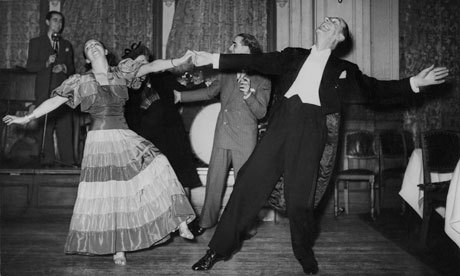
"The Savoy of this period, like London's other grand hotels, was a locus of powerful resentment: a building that symbolised the tenacity of privilege during wartime. There was even a word that went with it – Ritzkrieg – the campaign through which rich Londoners protected their perks and pleasures. But it was also possible to see it as the site of a peculiarly British form of resistance – a place in which quickstepping and drinking pink gin became a patriotic activity; where socialites bibbed for England to demonstrate that Hitler was not sufficiently powerful to disrupt the rituals of cocktail hour. The grand hotels were sensible places to make such a stand. The Dorchester reminded wartime guests that it was, at the skeletal level, a mesh of thick metal cables sunk into a raft of reinforced concrete. The Ritz ballyhooed the fact that its Belle Epoch curlicues concealed steel girders worthy of an American skyscraper. (They neglected to mention that the steel was German.) And under this somewhat illusory impression of safety, the statesmen, spooks and five-star refugees checked in. The Savoy, the Dorchester, the Ritz, Claridge's: each one became a kind of Casablanca.
At the Savoy, journalists filed articles from makeshift offices carved from the carcasses of once-expensive suites. Con artists and swindlers, invigorated by the opportunities brought by war, hunted for victims among the potted palms. Illegal abortionists, profiting from the wartime increase in unwanted pregnancies, conducted their business behind locked hotel-room doors. Spies and spymasters made the grand hotels into thriving centres of espionage, using quiet suites for debriefings and interrogations and picking at the plasterwork for hidden microphones. MI5 booked a suspected Nazi double agent called Stella Lonsdale into a room at the Waldorf, and waited for her to crack. Guy Burgess installed a pair of spies at the Dorchester, one a painfully handsome 19-year-old with 10 targets on his watch list – mainly homosexual Magyars (Hungarians) who were charmed by his unfingermarked good looks. "The whole place," shuddered the head of Special Branch, "is crawling with foreigners."
27/10/2011
The Voynich Manuscript dates to the early 15th Century

Using radiocarbon dating, a team led by Greg Hodgins in the UA's department of physics has found the manuscript's parchment pages date back to the early 15th century, making the book a century older than scholars had previously thought.
Currently owned by the Beinecke Rare Book and Manuscript Library of Yale University, the manuscript was discovered in the Villa Mondragone near Rome in 1912 by antique book dealer Wilfrid Voynich while sifting through a chest of books offered for sale by the Society of Jesus. Voynich dedicated the remainder of his life to unveiling the mystery of the book's origin and deciphering its meanings. He died 18 years later, without having wrestled any its secrets from the book.
"Is it a code, a cipher of some kind? People are doing statistical analysis of letter use and word use -- the tools that have been used for code breaking. But they still haven't figured it out."
More: http://www.sciencedaily.com/releases/2011/02/110210153016.htm
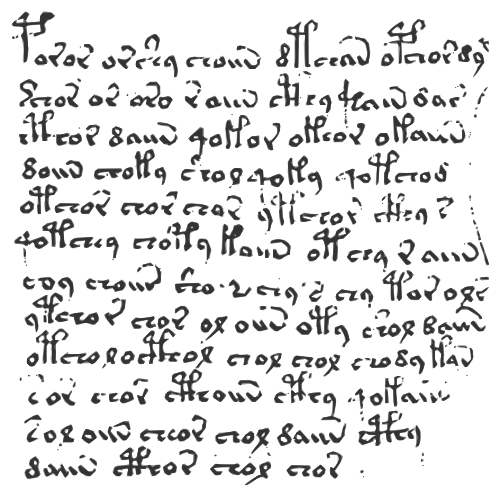
How to foretell a dictator

How to foretell a dictator? By scanning his brain (which, perhaps, should be a pre-requisite for all presidential candidates):
“They are usually charming, charismatic and intelligent,” wrote James Fallon, an American neuroscientist, in Psychology Today.
“They brim with self-confidence and independence, and exude sexual energy. They are also extremely self-absorbed, masterful liars, compassionless, often sadistic and possess a boundless appetite for power.”
Col. Gaddafi was “paranoid, narcissistic, power-hungry and vain,” he said.
After studying the behaviour of dictators, Mr. Fallon determined that genes, upbringing, abnormalities in the brain and a lack of empathy all played a role in forming such a person.
And, he concluded, “It is no coincidence that all dictators are men."
More: http://fullcomment.nationalpost.com/2011/10/22/peter-goodspeed-abnormal-brains-only-partly-explain-what-makes-someone-a-dictator/
26/10/2011
Blooming spring in autumn | LitBash 45

Armand Lanoux, France
Venedict Yerofeyev, Russia
Ulrich Plenzdorf, Germany
Erasmus, Netherlands
"The most disadvantageous peace is better than the most just war."
Kare Holt, Norway
Sylvia Plath, USA
"Nothing reaks quite as bad as a pile of unpublished manuscripts."
Evelyn Waugh, UK
"Aesthetic value is often the by-product of the artist striving to do something else."
Otto Flake, Germany
Jean Giraudoux, France
"As soon as war is declared it will be impossible to hold the poets back. Rhyme is still the most effective drum."
Jean Rostand, France
"Kill a man, one is a murderer; kill a million, a conqueror; kill them all, a God."
Carl Erik Soya, Denmark
Mary McCarthy, USA
"We all live in suspense, from day to day, from hour to hour; in other words, we are the hero of our own story."
Gerard Walschap, Belgium
Carlo Collodi, Italy
Pinocchio
Arkady Gaidar, Russia
Heinz Piontek, Germany
Willi Bredel, Germany
Walter Raleigh, UK
"Better were it to be unborn than ill-bred."
Nikolai Chernyshevsky, Russia
"History is fond of her grandchildren, for it offers them the marrow of the bones, which the previous generation had hurt its hands in breaking."
Frances Burnett, UK
"And this, my lovely child, is your garden."
William Wharton, USA
"What is love? As far as I can tell, it is passion, admiration, and respect. If you have two, you have enough. If you have all three, you dont have to die to go to heaven."
Pio Baroja, Basque
Copiale Cipher, an 18th century secret code is broken

The mysterious cryptogram, bound in gold and green brocade paper, reveals the rituals and political leanings of an 18th-century secret society in Germany. The rituals detailed in the document indicate the society had a fascination with eye surgery and ophthalmology, though it seems members of the society were not eye doctors."
The code was broken by a team led by Kevin Knight.
"To break the cipher, Knight and colleagues Beáta Megyesi and Christiane Schaefer of Uppsala University in Sweden tracked down the original manuscript, which was found in the East Berlin Academy after the Cold War and now is in a private collection. They transcribed a machine-readable version of the text, using a computer program created by Knight to help quantify the co-occurrences of certain symbols and other patterns."
Read more: http://www.sciencedaily.com/releases/2011/10/111025102320.htm

25/10/2011
The day Nixon wanted to blow up the world
"For two weeks in October 1969, the Nixon Administration secretly placed U.S. nuclear forces on alert. [...] Still today, no conclusive explanation for the potentially destabilizing alert can be found.
“There are two main after-the-fact explanations: first, that nuclear brinkmanship was designed to convince the Soviets that President Nixon was prepared to launch a nuclear attack against North Vietnam in order to convince Moscow to put pressure on Hanoi to negotiate an end to the war in Southeast Asia” along the lines that previous historians have suggested.
The second proposed explanation is “that the President ordered the alert as a signal to deter a possible Soviet nuclear strike against China during the escalating Sino-Soviet border dispute.” Consistent with the second interpretation, the FRUS volume provides new documentation of intelligence reports indicating that Soviet leaders were considering a preemptive strike against Chinese nuclear facilities.
Astonishingly, even the most senior U.S. military leaders were kept in the dark by the White House about the nature of the alert– before, during and after the event."
More: http://www.fas.org/blog/secrecy/2011/10/1969_nuclear_alert.html
WikiLeaks is dying. WikiJustice is born.
"The shutting down of the WikiLeaks website due to financial problems is unfortunate, even though it had become almost inevitable that its end was nigh. Organisations such as Mastercard, Visa, Western Union and PayPal, though not directly funding WikiLeaks, were effective channels for those who wanted to donate to it from across the world. Once they withdrew support, the donations dried up and the website ran out of cash, after which staying afloat was a struggle. Though no one will officially admit it, the connection between these organisations’ refusal to allow donations to go through them and the United States government’s displeasure at disclosures made by WikiLeaks is too blatant to be ignored." source
How is it possible that no channel exists in the entire world by which a person could support WikiLeaks? It's because of what you always suspected: a handful of companies control the entire financial / economic system:
"The work, to be published in PLoS One, revealed a core of 1318 companies with interlocking ownerships (see image). Each of the 1318 had ties to two or more other companies, and on average they were connected to 20. What's more, although they represented 20 per cent of global operating revenues, the 1318 appeared to collectively own through their shares the majority of the world's large blue chip and manufacturing firms - the "real" economy - representing a further 60 per cent of global revenues.
When the team further untangled the web of ownership, it found much of it tracked back to a "super-entity" of 147 even more tightly knit companies - all of their ownership was held by other members of the super-entity - that controlled 40 per cent of the total wealth in the network. "In effect, less than 1 per cent of the companies were able to control 40 per cent of the entire network," says Glattfelder. Most were financial institutions." source
Do not despair! WikiLeaks may suspend its operations, perhaps even cease to exist, but WIKIJUSTICE will set things straight:
24/10/2011
What is Fiction?
"What is fiction? And how does reading fiction affect how we experience the world?
The literary historian Luiz Costa Lima has argued that prior to the invention of fiction, narratives were largely measured against one overriding standard: the perceived truthfulness of their relation to the world. That truth was often a moral or theological one, and to the extent that narratives related the deeds of men, proximity to an image of virtue or holiness would be considered worthy of imitation, and distance from it worthy of opprobrium.
Fiction is different.
For a prose narrative to be fictional it must be written for a reader who knows it is untrue and yet treats it for a time as if it were true. The reader knows, in other words, not to apply the traditional measure of truthfulness for judging a narrative; he or she suspends that judgment for a time, in a move that Samuel Taylor Coleridge popularized as “the willing suspension of disbelief,” or “poetic faith.” Another way of putting this is to say that a reader must be able to occupy two opposed identities simultaneously: a naïve reader who believes what he is being told, and a savvy one who knows it is untrue. [...]
The fictional worldview, then, is one in which we are able to divide our selves to assume simultaneously opposing consciousnesses, and to enter and leave different realities at will, all the while voluntarily suspending judgments concerning their relation to an ultimate reality. This worldview has had an extraordinarily powerful impact on the modern world; in some interpretations it is the very epistemological signature of modernity, affecting equally our thought and politics as thoroughly as it does our art and literature. [...]
As Cervantes realized in the context of the newly born mass culture of the Catholic, imperial, Spanish state, irony expertly wielded is the best defense against the manipulation of truth by the media. Its effect was and still is to remind its audience that we are all active participants in the creation and support of a fictional world that is always in danger of being sold to us as reality."
Continue: http://opinionator.blogs.nytimes.com/2011/09/25/quixote-colbert-and-the-reality-of-fiction/
22/10/2011
Kidnap-murder mystery of the "unbalanced" scientist
"On Nov. 15, 1992, a terrified scientist -- trapped inside a white bungalow in the Uruguayan beach town of Parque del Plata -- broke a window to escape. Chubby, in his mid-40s, the man struggled through the opening.
Once outside, furtively and slowly, he picked his way through the town's streets to the local police station.
"I am a Chilean citizen," the scientist told the police. He pulled a folded photostatic copy of his identification papers concealed in his right shoe. "I have been abducted by the armies of Uruguay and my country," he claimed.
The scientist, rumpled with a graying beard, said he feared for his life. He insisted that his murder had been ordered by Gen. Augusto Pinochet, then the chief of Chile's army who had ruled as a dictator from 1973 to 1990.
The motive for the execution order was the man's anticipated testimony at a politically sensitive trial in Chile, a case that could have sent reverberations all the way to Washington, D.C., potentially embarrassing the man who in November 1992 still sat in the White House, President George H.W. Bush.
[...] the scientist's fate became a complex kidnap-murder mystery, with improbable twists and turns, an apparent disinformation trick, raw political power, a grisly discovery and, finally, forensic science."
Read more: http://consortiumnews.com/2006/071206a.html
21/10/2011
I don't want to be an emperor
Greed has poisoned men's souls; has barricaded the world with hate; has goose-stepped us into misery and bloodshed. We have developed speed, but we have shut ourselves in. Machinery that gives abundance has left us in want. Our knowledge as made us cynical; our cleverness, hard and unkind. We think too much and feel too little. More than machinery we need humanity. More than cleverness, we need kindness and gentleness. Without these qualities, life will be violent and all will be lost. The aeroplane and the radio have brought us closer together. The very nature of these inventions cries out for the goodness in man; cries out for universal brotherhood; for the unity of us all.
Even now my voice is reaching millions throughout the world, millions of despairing men, women, and little children, victims of a system that makes men torture and imprison innocent people. To those who can hear me, I say "Do not despair." The misery that is now upon us is but the passing of greed, the bitterness of men who fear the way of human progress. The hate of men will pass, and dictators die, and the power they took from the people will return to the people. And so long as men die, liberty will never perish.
Let us all unite. Let us fight for a new world, a decent world that will give men a chance to work, that will give youth a future and old age a security. By the promise of these things, brutes have risen to power. But they lie! They do not fulfill their promise. They never will! Dictators free themselves but they enslave the people! Now let us fight to fulfill that promise! Let us fight to free the world! To do away with national barriers! To do away with greed, with hate and intolerance! Let us fight for a world of reason, a world where science and progress will lead to all men’s happiness."
Charlie Chaplin in The Great Dictator
20/10/2011
The Dark Arts

"Most business schools offer a variety of specialities, from marketing and accounting to corporate finance. But there is a school in Europe with an MBA program in what faculty members call “defence against the dark arts.”
Students are taught everything from the power of influence and lobbying tactics to reputation management and crisis communications. But the focus is on how to produce, protect and gain information, using what Bianchi calls “a mix-up of civilian and military exercises in the field of information and of opposition management.” Every student, he adds, must complete 12 to 18 exercises based on using military tactics to fight “the info war."
When most people talk about industrial espionage in the West, the finger wagging is typically aimed at China and Russia. In emerging markets, more than a few people insist that Uncle Sam somehow manages aggressively to deploy the CIA to steal trade secrets for select U.S. corporations without raising a legal peep from other American companies. But what those concerned talk about when not tossing accusations at China or the United States is France—an aggressive collector of industrial intelligence since the mid-1700s, when the British naively invited French operatives to inspect their mines, smelters and foundries. The British Board of Longitude even foolishly let French operatives examine John Harrison’s revolutionary marine clocks."
More: http://www.canadianbusiness.com/article/51240--spies-like-them
19/10/2011
Pentagon to use stories in propaganda wars
"Stories “change the course of insurgencies, frame negotiations, play a role in political radicalization, influence the methods and goals of violent social movements.”
[...] the Pentagon wants researchers to study how stories infiltrate social networks and alter our brain circuits. One of the stipulated research goals: to “explore the function narratives serve in the process of political radicalization and how they can influence a person or group’s choice of means (such as indiscriminant violence) to achieve political ends.”
Once scientists have perfected the science of how stories affect our neurochemistry, they will develop tools to “detect narrative influence.” These tools will enable “prevention of negative behavioral outcomes … and generation of positive behavioral outcomes, such as building trust.” In other words, the tools will be used to detect who’s been controlled by subversive ideologies, better allowing the military to drown out that message and win people onto their side." From: http://www.wired.com/dangerroom/2011/10/darpa-science-propaganda/
Meanwhile, you do not have to wait to find out how state "wins people onto their side" by use of propaganda - read all about it in this chilling book.

